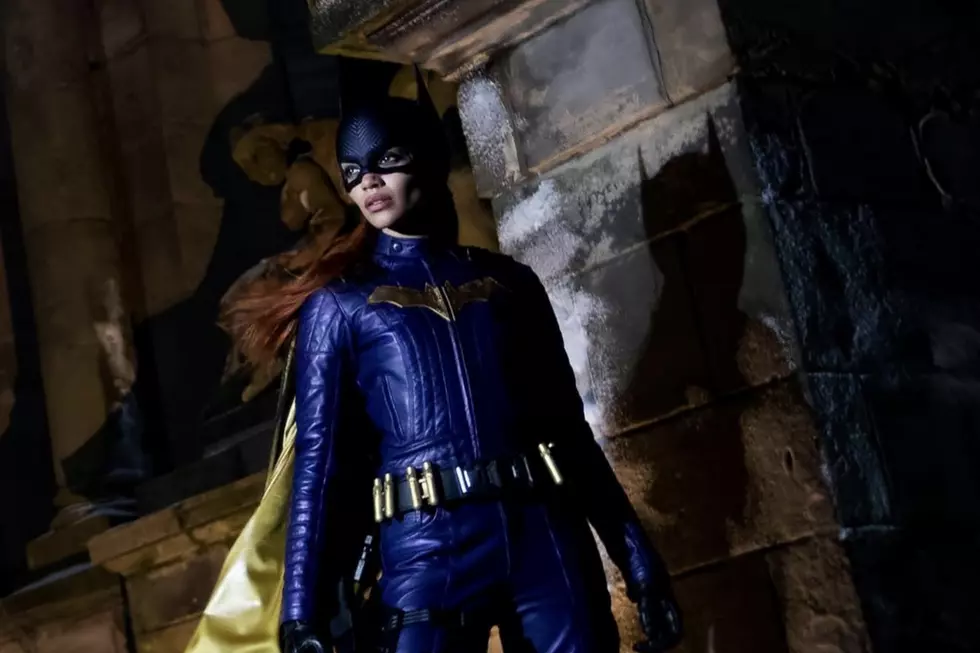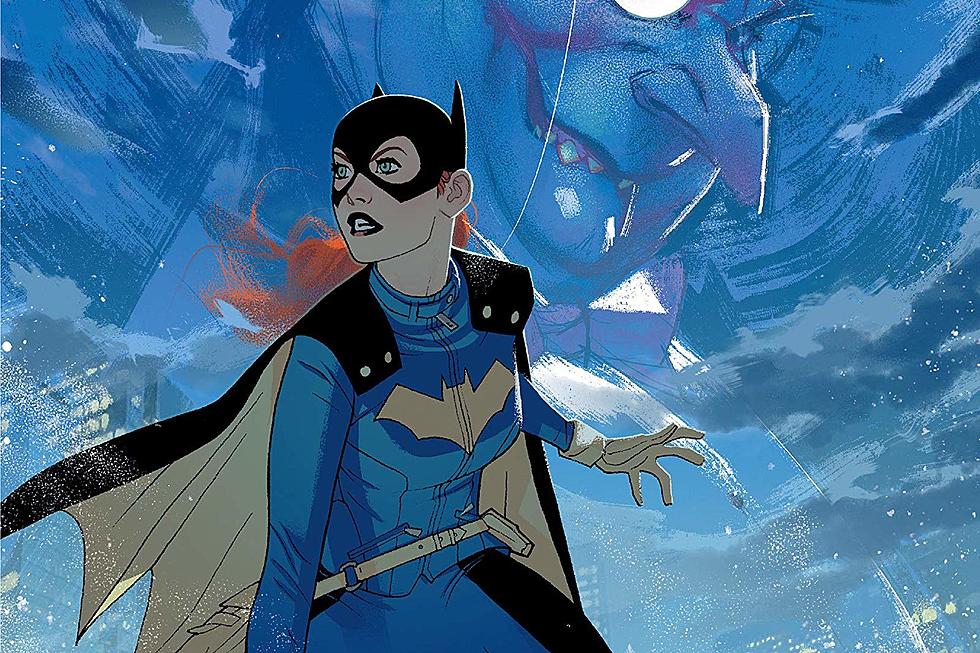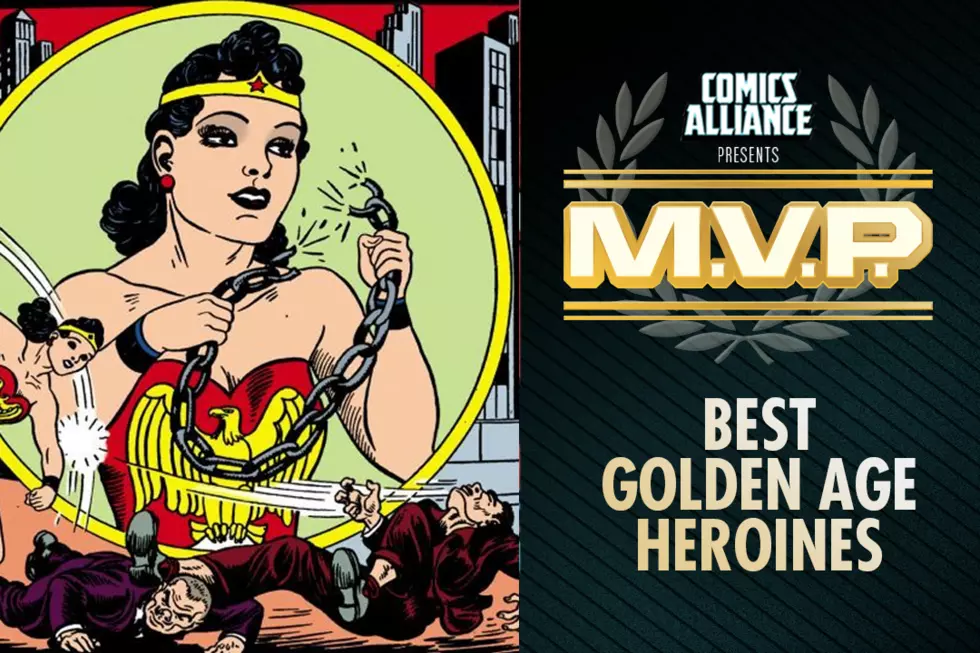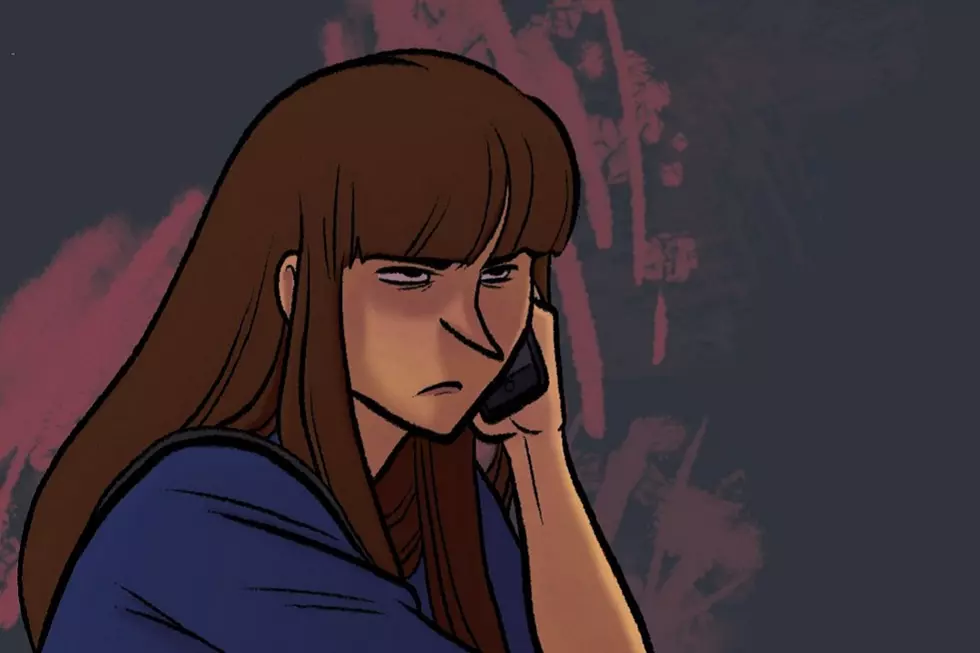
The ‘Vocal Minority’ And Artistic Integrity In Comics
Things got interesting over the past few days for comics folks who keep their ear to online skirmishes over how welcoming comics is or isn't --- and how welcoming comics should be in the first place. Between the new Killing Joke-inspired and tonally jarring cover to Batgirl #41 (which was just pulled at artist Rafael Albuquerque's request, and in line with the creative team's wishes) and Erik Larsen going on a Twitter rant about comics pandering to a "vocal minority" that in his mind wanted superheroines covered up, it would be easy for readers interested in the new world order of "comics for everyone" to feel discouraged. After all, if some of the decision-makers at DC and one of the owners of Image Comics don't get it, how can we expect everyone else to get it? The answer is easy: we move on without them.
The Batgirl cover is not only a poor choice for the book that Batgirl has become, it's also evidence of the often unwieldy corporate structure that makes up DC Comics. Readers might assume that variant covers are cleared with the creative team or even the editors, but especially when it's a special theme month, that isn't usually the case. Variant covers are often commissioned and approved by art directors who have little to do with the actual books the covers will be placed on.
While the creators on Batgirl have a clear vision for their book --- and the style of that book doesn't jibe with this new variant --- they don't own the characters, and so decisions can and often are made without the creative team's approval. It's not ideal, but it happens. Similarly, sometimes editors just aren't shown a cover until after it's already been sent to Previews, or when the completed cover makes the rounds for approval internally if it was commissioned by another department.
Someone at DC is to blame for this tonal misstep, but it's unlikely that it's the same team that has carefully created this current run, and who went so far as to craft one of the most careful apologies regarding trans representation that any non-trans creator has probably ever produced. It's not as if they could miss the abusive and sexual undertones in the image or the terrible, woman-in-a-refrigerator aspects to the story that is The Killing Joke. Without the later work of Chuck Dixon and Gail Simone, that's all anyone would think of in regards to Barbara Gordon and The Killing Joke.
Albuquerque was unaware of much of this, as he said in a statement:
For me, it was just a creepy cover that brought up something from the character’s past that I was able to interpret artistically. But it has become clear, that for others, it touched a very important nerve. I respect these opinions and, despite whether the discussion is right or wrong, no opinion should be discredited.
My intention was never to hurt or upset anyone through my art. For that reason, I have recommended to DC that the variant cover be pulled. I'm incredibly pleased that DC Comics is listening to my concerns and will not be publishing the cover art in June as previously announced.
The "whether the discussion is right or wrong" bit aside, it becomes clear that Albuquerque was unaware of the undertones of the story that have bothered many readers. Someone internally at DC also missed it or ignored it and approved this cover on a book that is particularly important for female fans who have for years begged to be considered a viable audience for super hero comics.
(You can see Albuequerque's cover here.)
Those female fans are that "vocal minority" that Larsen is complaining about, of course; the scourge of anti-feminists who, if you are to believe certain corners of the internet, ride about online looking for men to oppress with their opinions about how women should be portrayed.
For the first time in decades, super hero comics publishers give a damn about what those fans like, and with that new attention comes a lot of derision. Larsen is not the first, nor will he be the last creator to complain about comics doing something that evolves our industry beyond the 1990s. Larsen claims now that he was not talking of women specifically, but it's hard to not see the gendered slant in comments like the one that started the ruckus: "I'm tired of the big two placating a vocal minority at the expense of the rest of the paying audience by making more practical women outfits."
Larsen was never quite sure when to stop on this tirade, and after deleting his account last night, he came back with a tweet where he included an image with much of what he'd said, which doesn't really help clarify or redeem his argument. Some choice quotes include "There is a portion of the audience that would dearly love frumpy, plain looking female characters whose love interests are all impossibly handsome men. Kind of a wish fulfillment thing, I suppose" and "I do find it interesting that, generally speaking, no males are 'good enough' for female lead characters and yet nearly any women character is a perfectly suitable mate for a male character."
Reactions in support of Larsen and the Batgirl variant cover have something in common besides a backlash against feminist opinions; they share the idea that artistic integrity should be held above all else --- as long as it's what you want (with "you" being the fan or pro defending said artistic choices).
Albuquerque delivered the cover he was commissioned to do --- just like Milo Manara on the Spider-Woman cover --- but it's also not his book nor his property. If anyone's artistic integrity should be considered, shouldn't it be the creative team of Cameron Stewart, Brenden Fletcher, and Babs Tarr, who work on the book every month? Who is compromised most by that cover; Albuquerque in scrapping it, or Stewart, Fletcher, and Tarr in keeping it? And who gets a vote on said artistic compromise?
Similarly, if this mysterious "vocal minority" did in fact influence how characters are designed --- but creators still end up designing new costumes to the best of their abilities, and feel pleased with the work they did --- whose artistic integrity do we protect? The previous creators' costumes or the new creators' costumes?
No one's telling Larsen that he can't make Savage Dragon as cheesecakey as he wants to. Is anyone being hurt by changing styles and a new generation of outspoken fans, other than the veteran creators whose style is becoming outmoded?
The victims of this particular controversy are not disgruntled artists like Larsen, who still have venues for their own artistic expression, but the people like Albuquerque, who did the work he was asked to do by someone who doesn't understand the audience for the book; people like Jamie McKelvie and Kelly Sue DeConnick, who publish comics through a company part-owned by a man who has now publicly derided their work; or people like Stewart, Fletcher, and Tarr whose book is being tainted by something outside of their control.
Times are changing. Fans and pros who are angry about it are not victims. They've dominated the comics industry for decades. Now they too must learn to live with a world where not every single book is made for them.
More From ComicsAlliance



![When Everything Is Pink, Nothing Is Pink: Sarah Stern On Color And Creativity [Interview]](http://townsquare.media/site/622/files/2017/03/Cindersong-feat.jpg?w=980&q=75)





